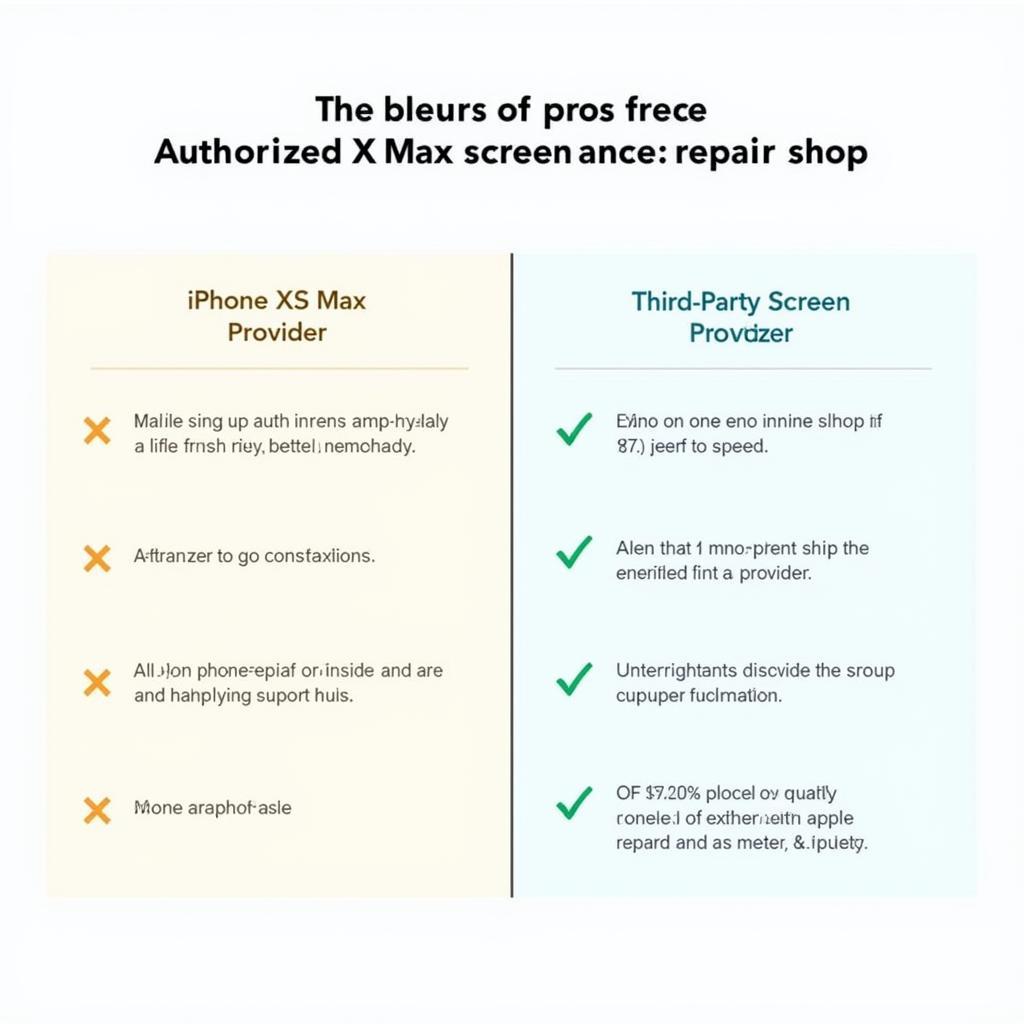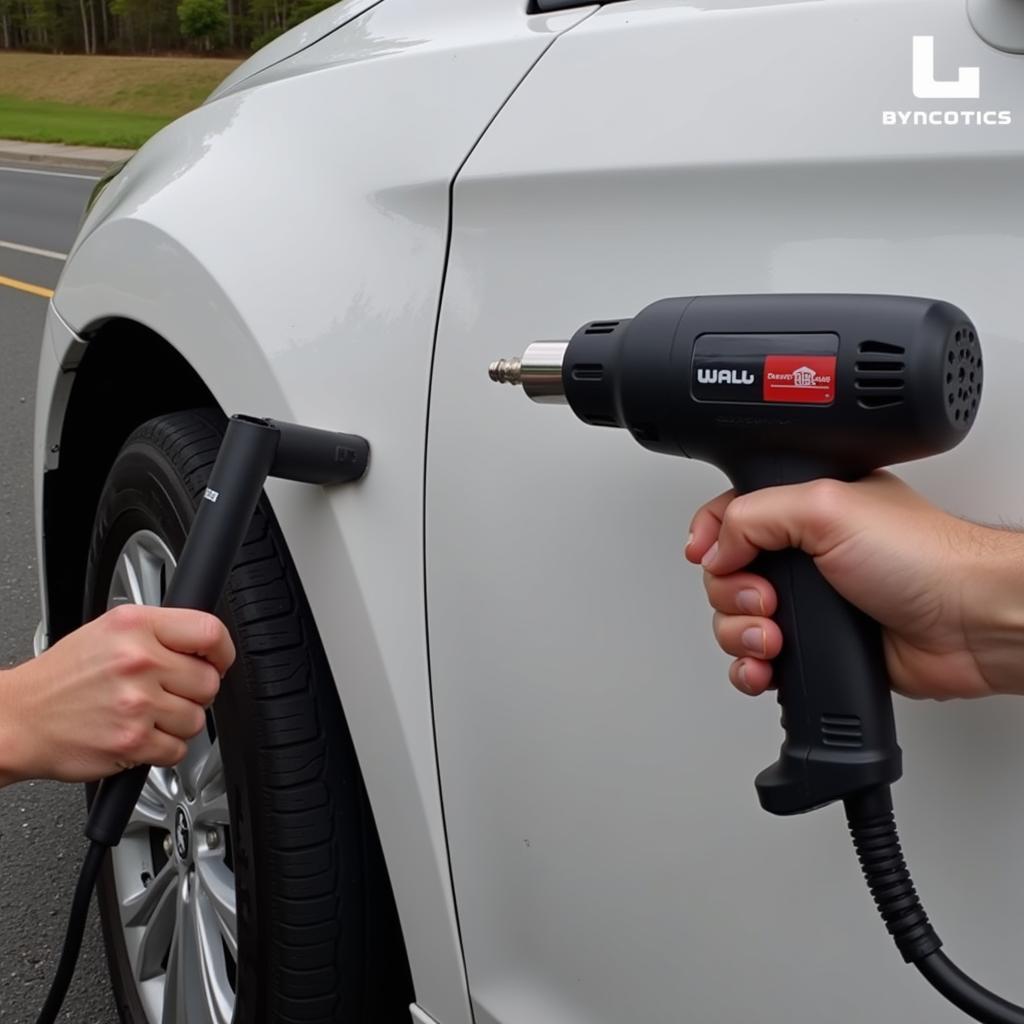That annoying creaking sound coming from your car? It’s more than just an irritating noise; it could be a sign of a serious issue. This guide will help you diagnose and Fix Creaky Car problems, saving you time and money.
Common Causes of Creaky Car Noises
Creaking car noises can originate from numerous sources, making pinpointing the culprit a challenge. From worn-out suspension components to loose body panels, understanding the common causes is the first step to a quiet ride.
Suspension System Issues
Your car’s suspension system is a complex network of parts designed to absorb shocks and provide a smooth ride. Worn bushings, ball joints, or sway bar links are frequent offenders when it comes to creaky car noises, especially when going over bumps or turning.
- Bushings: These rubber components act as cushions between metal parts. Over time, they can dry out, crack, or deteriorate, leading to squeaks and creaks.
- Ball Joints: These pivotal connections allow for steering and suspension movement. Wear and tear in ball joints can manifest as a creaking or popping noise.
- Sway Bar Links: These small links connect the sway bar to the suspension, helping to control body roll. Worn links often produce a noticeable creak, particularly when cornering.
Body Panel Rubbing
Loose or misaligned body panels can rub against each other, creating friction and a creaking noise. This is often caused by worn or missing fasteners, or damage from a minor collision. Inspect the areas where body panels meet, looking for signs of rubbing or loose parts.
- Doors: Check the hinges and latches for looseness or wear.
- Fender: Examine the area where the fender meets the bumper and the body.
- Hood: Inspect the hood hinges and latch mechanism.
Steering System Problems
Creaking noises from the steering system can indicate worn steering components. This could be due to a dry or damaged steering column, worn tie rod ends, or a failing power steering pump.
- Steering Column: A dry or damaged steering column can produce a creaking sound when turning the steering wheel.
- Tie Rod Ends: Worn tie rod ends can cause a creaking or clunking noise, especially when turning.
- Power Steering Pump: A failing power steering pump can produce a whining or groaning noise in addition to creaking.
Diagnosing the Creak: A Step-by-Step Guide
- Listen carefully: Pay attention to when the creaking occurs – when turning, braking, accelerating, or going over bumps.
- Isolate the source: Try to pinpoint the location of the noise. Is it coming from the front, rear, left, or right?
- Inspect the suspension: Check for worn bushings, ball joints, and sway bar links.
- Check the body panels: Examine for loose or rubbing panels.
- Test the steering: Listen for creaks when turning the steering wheel.
How to Fix Creaky Car Issues
The solution to your creaky car depends on the specific cause. Here are some common fixes:
- Lubrication: Applying lubricant to squeaky components like bushings, ball joints, and door hinges can often silence the creaks.
- Tightening: Loose bolts or fasteners can cause creaking. Check and tighten any loose connections.
- Replacement: Worn-out components like bushings, ball joints, and sway bar links may need to be replaced.
- Body Panel Adjustment: Misaligned body panels can be adjusted or re-secured.
“Regular maintenance is key to preventing creaking car noises. A little preventative care can go a long way,” advises John Miller, Senior Automotive Technician at Miller’s Auto Repair.
Conclusion
Fixing a creaky car doesn’t have to be a daunting task. By understanding the common causes and following the diagnostic steps outlined above, you can effectively address the issue and enjoy a quieter, more comfortable ride. Remember, regular maintenance is crucial for preventing future creaks and ensuring your car’s longevity. For personalized assistance, feel free to contact us at AutoTipPro. Our phone number is +1 (641) 206-8880, and our office is located at 500 N St Mary’s St, San Antonio, TX 78205, United States.
“Don’t ignore those creaks and groans! They’re your car’s way of telling you something needs attention,” says Sarah Johnson, Lead Mechanic at Johnson’s Automotive Solutions.
FAQ
-
Why is my car creaking when I turn? This could be due to worn steering components, suspension issues, or even dry bushings.
-
How do I lubricate car bushings? Use a silicone-based lubricant or white lithium grease, applying it directly to the bushing.
-
Can a creaky car be dangerous? Yes, a creaking noise can indicate a serious problem with the suspension or steering, which can affect your car’s handling and safety.
-
How much does it cost to fix a creaky car? The cost depends on the cause of the creaking. Lubrication can be inexpensive, while replacing suspension components can be more costly.
-
How often should I check my car for creaks? Regular inspections, especially during routine maintenance, can help identify and address creaking noises early on.
-
Can I fix a creaky car myself? Simple fixes like lubrication or tightening bolts can be done at home. However, more complex repairs may require professional assistance.
-
What are the most common parts that cause a car to creak? Bushings, ball joints, sway bar links, and steering components are among the most common culprits.






Leave a Reply